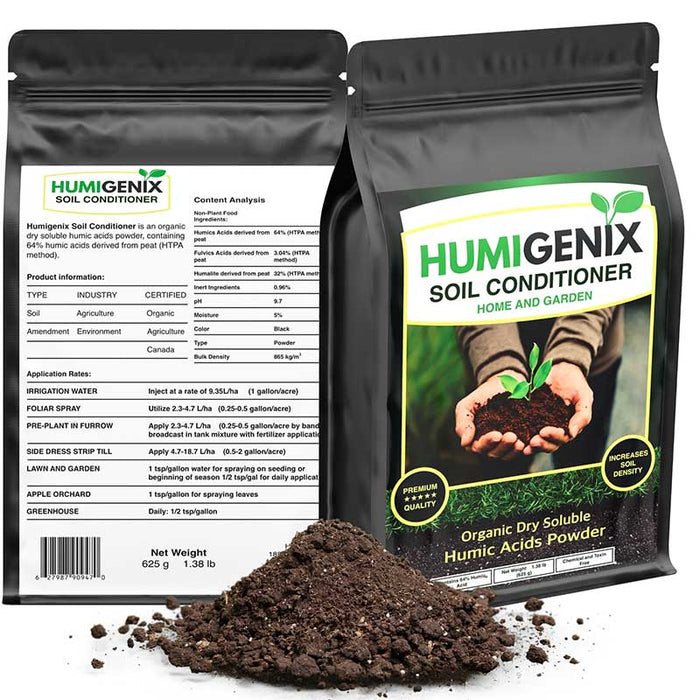
On Orders Over $250
On orders over $250

Savvy farmers have known for centuries that humic acids are highly beneficial for plants. Using humic acids in the soil increases the number of nutrients a plant can take in, making plants bigger, better, and more robust, equating to more yield, which is an obvious win come harvest time.
Another plus is that humic and fulvic acids blend well with fertilizers, allowing plants to thrive after receiving extra nutrients they do not get from their natural environment. Humic acids make these nutrients readily available for plants because humic acids are naturally oxidized and hold a negative charge. In turn, the negatively charged molecules attract positively charged cations to bind to them in the surrounding soil water. This process is known as cation-exchange capacity.
"Cations are adsorbed to soil surfaces by the electrostatic interaction between their positive charge and the negative charge of the surface, but they retain a shell of water molecules and do not form direct chemical bonds with the surface," according to Wikipedia. "Exchangeable cations thus form part of the diffuse layer above the charged surface. The binding is relatively weak, and a cation can easily be displaced from the surface by other cations from the surrounding solution."
Negatively charged root systems help plants absorb nutrients that typically remain locked in the soil and unavailable to plants.
In foliar applications, pairing humic acids with fulvic acids helps increase plant cell wall permeability, allowing plants to receive much-needed nutrients not typically available.
Harmful toxins in the soil, such as pesticides, and heavy metals, can be detrimental to plant health and decrease plant volume, ultimately affecting yield. Withal, humic acids can chelate these harmful toxins from the soil, giving plants what they need and making them vibrant.
Another unique benefit of humic acids is that they can increase soil water retention, a significant advantage in today's world, as harsh weather in some regions continues to cause drought, making soils parched. Blending humic acids in low-clay, arid, and sandy soils is crucial and can quell evaporation by up to 30%.
A healthy soil microbiome is essential to soil environments and helps plants develop and become their best. Humic acids can revive the soil microbial population, creating food and shelter for microbes.
It's no secret that pesticides damage soil and make it hard for good microbes to survive, which is why humic acids play a role in soil and plant health.
Humic acid has a large molecule size, allowing them to bond to soil molecules, and space them out, so that microbes can grow their best. The space in the soil also allows plants to root better and thrive, especially in compact soils and clays.
Moreover, humic acids help extract salts from clay, which increases soil aeration.
